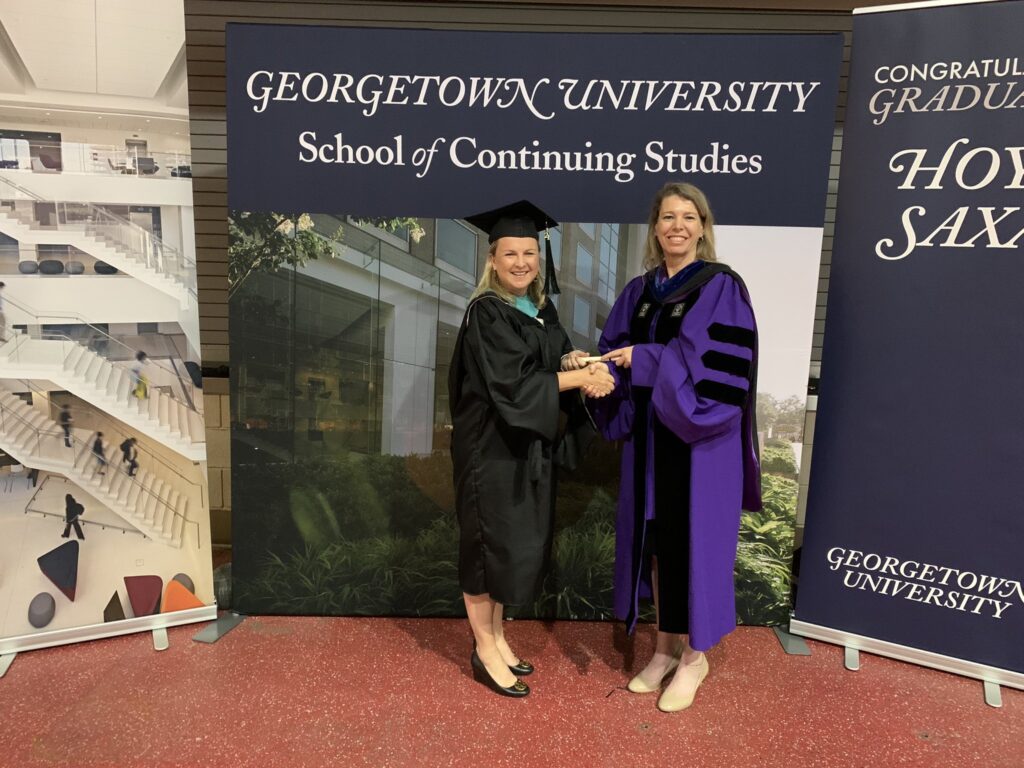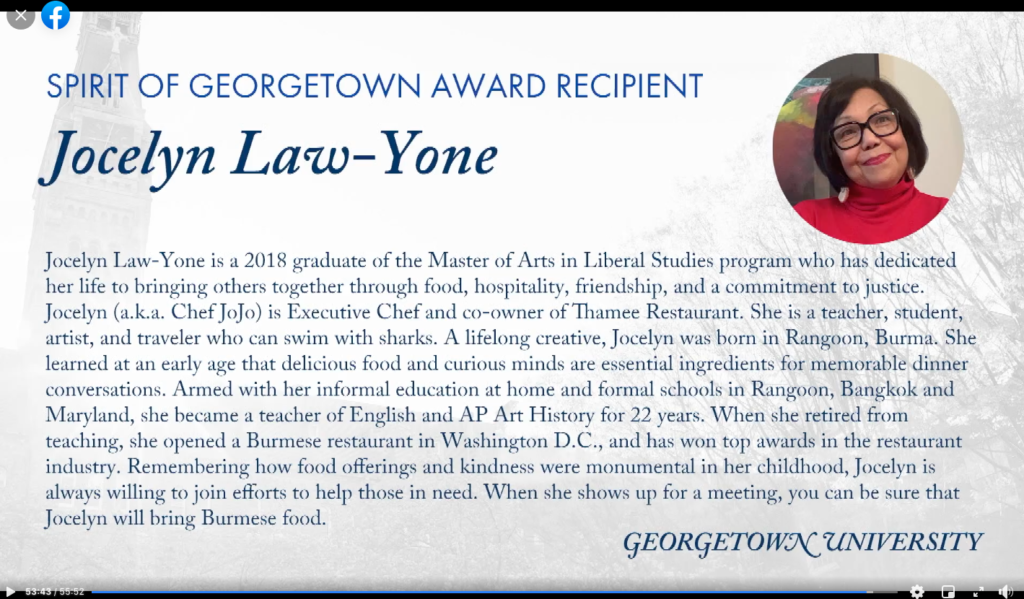The inspiring message of hope from last week’s Mission in Motion was put to the test in recent days as tragic events around the globe demand our attention and response. A humanitarian crisis in Afghanistan and the devastating impact of Hurricane Ida on communities along the Gulf Coast point to the urgent need for action in response to human suffering. These crises also illustrate how vulnerable people and communities endure disproportionate harm and are least able to withstand the effects of environmental degradation and war.
Events in Afghanistan and the Gulf Coast can return our attention to a cornerstone commitment of a Jesuit education. The Spirit of Georgetown calls all of us to be people for others and to live out a faith that does justice. An education that does not challenge and inspire action to support vulnerable people in times of need and address the structural conditions that create such need is not consistent with the Jesuit values that animate our work at Georgetown. In their recent proclamation of Universal Apostolic Preferences (UAPs), the Jesuits worldwide have made Walking with the Excluded an explicit orientation of all Jesuit and Jesuit-animated activities. According to the UAPs, walking with the excluded means:
“To walk with the poor, the outcasts of the world, those whose dignity has been violated, in a mission of reconciliation and justice. Sent as companions in a mission of reconciliation and justice, we resolve to walk with individuals and communities that are vulnerable, excluded, marginalized, and humanly impoverished…The path we seek to follow with the poor is one that promotes social justice and the change of economic, political, and social structures that generate injustice. … We confirm our commitment to care for migrants, displaced persons, refugees, and victims of war and human trafficking.”
But how to go about this personal accompaniment when the injustices on display this week may seem distant from our daily experience? In order to live out this mission of reconciliation and justice, Georgetown has provided useful information for anyone who wants to respond to the refugee and asylum crisis arising from the conflict in Afghanistan and the destruction caused by Hurricane Ida.
The Georgetown Institute for Women, Peace, and Security (GIWPS) has long worked in solidarity with Afghan women and has created protectafghanwomen.org. Through the site, you can donate to help the evacuation of at-risk Afghan women, call your representatives to urge further action, and spread the word about the conditions in Afghanistan for women, civil society, and human rights leaders. Georgetown’s Center for Social Justice Research, Teaching & Service (CSJ) has provided information on its website about how to support Afghan allies through Lutheran Immigrant and Refugee Service and the Jesuit Refugee Service. And the GU Veterans Association has provided information about how to support Afghan refugees.
In the wake of Hurricane Ida’s destruction, many people in Louisiana and the Gulf Coast have been left with no power and few resources. To find out how you can support disaster relief efforts during this time, please visit this Disaster Response page by the CSJ.
Responding generously, creatively, and courageously to social, environmental, and economic injustices is a characteristic of Jesuit education. You can see this demonstrated in how Spring Hill College, a Jesuit institution in Mobile, Alabama, responded by providing temporary housing for students at Loyola University New Orleans, a peer Jesuit institution directly impacted by Hurricane Ida. Actions like these are necessary to sustain hope.







